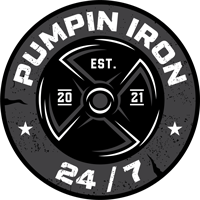Fueling Your Body for Peak Performance
Ensuring optimal performance through nutrition is crucial for supplying the energy, endurance, and mental clarity necessary to excel in physical activities. The food and nutrients you consume directly impact both your mental and physical capabilities, particularly during activities requiring stamina and energy. Your nutrition strategy should be tailored to the specific demands of your activity, considering factors such as duration, intensity, gender, age, and body composition goals. Whether you're preparing for a marathon or focusing on strength training, maintaining a balanced, whole-food diet is key.
While much attention is typically given to pre-activity nutrition, daily dietary habits significantly influence overall performance.
Energy intake generally consists of:
45% to 65% carbohydrates
20% to 35% fat
15% to 25% protein
Carbohydrates are the primary energy source for fueling physical performance, converting into glucose, the body's preferred energy source. Adequate glycogen stores derived from carbohydrates are essential for sustaining energy levels over extended periods and preventing fatigue. For activities lasting longer than 90 minutes, carbohydrate loading may be beneficial, involving increased carbohydrate intake in the days leading up to the event.
Fats also play a crucial role, particularly in longer, lower-intensity exercises, providing sustained energy when glycogen stores are depleted. Opt for sources rich in unsaturated fats and essential fatty acids while minimising trans and saturated fats.
Protein, although not the primary energy source, is vital for muscle repair and growth, particularly in activities like resistance training where muscle tissue undergoes stress.
Pre-Workout
Sports Dietitians Australia recommends consuming your last main meal 2-4 hours before exercise and having a pre-workout snack about an hour before. The snack should:
Be rich in carbohydrates to fuel stores
Be low in fiber, especially if gut sensitivity or nervousness is an issue
Be easy to digest, avoiding high-fat or high-protein foods
Be familiar and practiced during training to avoid surprises on event day
Hydration is equally critical for peak performance, impacting temperature regulation, cognitive function, muscle function, endurance, and recovery.
During Exercise
For sessions under 60-90 minutes, additional fueling is typically unnecessary. However, for longer sessions, consuming carbohydrates during exercise helps maintain stable blood glucose levels, sustaining energy for muscles and the brain. Examples include carbohydrate gels, dried fruit, or sports energy bars.
True Electrolyte offers another option, replenishing electrolytes (sodium, magnesium, potassium) to maintain hydration and peak physical performance during exercise.
Post-Workout
Post-workout nutrition supports recovery and prepares you for subsequent workouts, especially when training intensely or multiple times a day. Focus on:
High-quality carbohydrates to replenish muscle fuel
Lean protein for muscle repair
Fluids and electrolyte sources for effective rehydration
Conclusion
Fueling for performance is essential whether you're a competitive athlete striving for peak results or someone who enjoys an active lifestyle. Your nutritional choices profoundly influence your fitness goals and overall well-being. It's crucial to tailor your nutrition plan to your individual needs, experiment with different strategies, and seek guidance from nutrition experts to optimise your performance effectively.
Remember, nutrition is not a one-size-fits-all approach. Listen to your body, adapt your fuelling strategies accordingly, and customise your nutrition plan to achieve your personal goals.


Share:
A Guide to the 7 Most Common Superfoods
Tips for Getting Back into the Gym